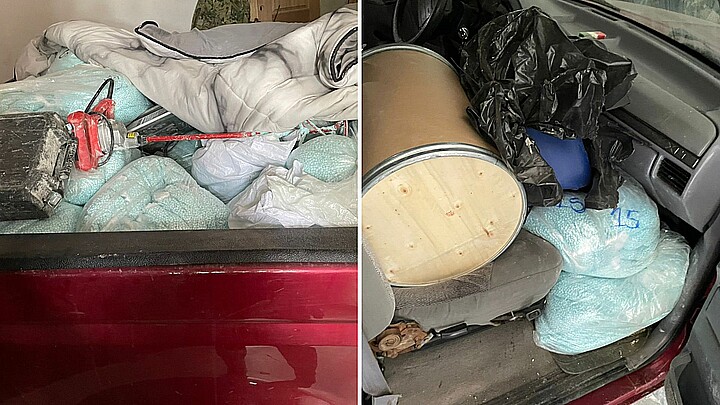Drug trafficking
China and Mexican cartels consolidate fentanyl distribution throughout the Americas
The Sinaloa and Jalisco Nueva Generación cartels are the main suppliers of this drug in the U.S.
February 9, 2022 3:25pm
Updated: February 9, 2022 6:47pm
Mexico is the primary source of illegal fentanyl marketed in the United States. Mexican cartels manufacture it in clandestine laboratories, with chemicals coming mainly from China, the Federal Commission on Combatting Synthetic Opioid Trafficking reported this week.
"In 2019, the People's Republic of China expanded legal controls on fentanyl-related substances and supply focused on Mexico," said a report published by a bipartisan group of U.S. lawmakers, experts, and officials.
"Synthetic fentanyl opioids are enormously useful to drug traffickers since they are so potent that just small amounts can supply a small city," explained Vanda Felbab-Brown, a senior fellow in the Foreign Policy program at the Center for 21st Century Security and Intelligence at the Brookings Institute.
Felbab-Brown, "investigated the most recent form of the fentanyl route: from China as a precursor to Mexico and from there, mainly to the United States and Canada, as well as Central and South America."
In 2019, the Chinese government regulated the export of fentanyl precursors under a licensing system. But by then, the Jalisco New Generation (CJNG) and Sinaloa cartels—the main suppliers of this drug —were already manufacturing it and even had knowledge of much lower costs and how "simple" it was to traffic it.
"The cartels buy the precursors in China. They take it to Mexico. There they convert it into fentanyl. And then they distribute it mostly to the United States. But in the last two years they started distributing it in Mexico itself," Felbab-Brown added.
To take the drugs to the United States, criminal organizations mainly use "the southwest border, but also passenger ships, cargo ships, trains, commercial aircraft, drones, and mail".
Corruption, threats from organized crime, and the reluctance of Mexican authorities to acknowledge the growing problem of illegal fentanyl production are other factors contributing to the problem, according to the Federal Commission on Combatting Synthetic Opioid Trafficking,
"The Mexican government should exercise greater security-related functions in parts of the national territory where criminal organizations have a stronghold. Lack of institutional resources, limited activity by regulatory agencies, and inadequate involvement of local law enforcement have led to insufficient oversight of the trade at the entry points where fentanyl precursor chemicals enter the country," stated the report.
Drug overdoses cost the U.S. government one trillion dollars annually, according to the report. Since 1999, drug overdoses have killed more than one million people in that country, with fatal overdoses amounting to 100,000 deaths between June 2020 and May 2021 alone.








